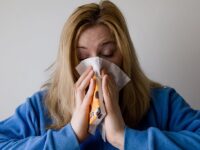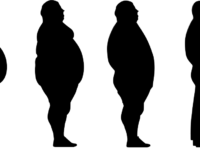Most people know that adults are supposed to get 7 to 9 hours of sleep every night; however, the CDC reports that 1 in 3 adults are not getting enough sleep. As students, we may feel immune to this rule, as staying up late to finish assignments, hang out with friends, and study is the norm. The feeling of exhaustion when you wake up for an 8 a.m. class, telling you to go back to bed, may actually be justified! The number of hours adults need to sleep is not an arbitrary number; it is based on mounding evidence that getting less than 7 hours of sleep is linked to a myriad of long-term consequences including high blood pressure, obesity, diabetes, and mental issues.
The number of hours adults need to sleep is not an arbitrary number; it is based on mounding evidence that getting less than 7 hours of sleep is linked to a myriad of long-term consequences including high blood pressure, obesity, diabetes, and mental issues.
In healthy individuals, one of the long term consequences of sleep deprivation is a variety of cardiovascular issues. A meta-analysis found that risk for hypertension (chronic high blood pressure) was more common in adults with sleep disturbance. Furthermore, a population-based study found associations between sleep issues and cardiovascular disease, finding that there were greater instances of myocardial infarction (heart attack) in middle-aged women that reported difficulty maintaining sleep or short sleep duration. In adolescents, sleep disturbances and low quality of sleep were associated with a higher systolic blood pressure, higher cholesterol levels, high body mass index (BMI) and an increased risk of hypertension.
Apart from cardiovascular issues, metabolic functioning is heavily impacted by changes in sleep patterns. Specifically, when individuals are getting reportedly less sleep, energy metabolism is impaired, both reducing insulin sensitivity and increasing appetite. These results were also mirrored in experimental studies which stimulated sleep disruption in healthy adults. The consequences include a propensity to both obesity and Type 2 diabetes mellitus (T2DM) in adult populations with sleep issues. In order to maintain healthy and normal metabolic functioning, it is integral to get a proper amount and good quality of sleep. Without those, poor sleep habits will inevitably contribute to the obesity epidemic and the increased prevalence of T2DM in the United States.
Beyond overtly physiological symptoms, sleep loss is also associated with negative behavior — specifically in mood, anxiety, and alcohol use. Studies have found that individuals, specifically adults, with chronic sleep loss report having symptoms of anxiety, depression, and other forms of mental distress. For adolescents, several studies have found an association between anxiety, depression, behavioral problems, and alcohol use with sleep loss. However, it is still unknown whether the association is because of poor sleeping habits or because anxiety, depression, behavioral problems, and alcohol use can lead to sleep loss and poor quality of sleep.
Based on these findings, it is clear that getting 7 to 9 hours of sleep as an adult is crucial to overall health and in the realms of cardiovascular issues, metabolic functioning, and behavior. While there are links between poor sleep and BMI for adolescents, it is difficult to determine the correlation between adolescents’ sleep loss and behavioral issues. Lack of sleep may even play a role in the current obesity epidemic. Nevertheless, it is indisputable that an adequate amount of sleep is necessary to maintain health. While you may have heard the colloquial saying “if you snooze, you lose,” now more than ever before, it is clear that the extra few minutes may make all the difference.
While you may have heard the colloquial saying ‘if you snooze, you lose,’ now more than ever before, it is clear that the extra few minutes may make all the difference.
Sources:
Diabetes (2015). DOI: 10.2337/db14-1475
The National Academies Press (2006). DOI: 10.17226/11617
Sleep (2007). DOI: 10.1093/sleep/30.9.1121
Nature and Science of Sleep (2017). DOI: 10.2147/NSS.S134864Child Development (1998). DOI: 10.1111/j.1467-8624.1998.tb06149.x
Image courtesy of Wikimedia Commons




